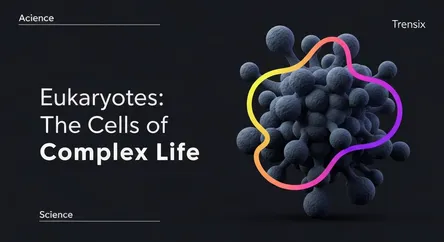Science
Eukaryotes: The Cells of Complex Life

Explore eukaryotes, the complex cells with a true nucleus that form the building blocks for all animals, plants, fungi, and protists.
What is it?
A eukaryote is any organism whose cells contain a true nucleus and other membrane-bound organelles. The defining feature is the nucleus, a compartment that houses the cell's genetic material (DNA). Unlike simpler prokaryotic cells, eukaryotic cells are highly organized with specialized organelles like mitochondria for energy production and the endoplasmic reticulum for protein synthesis. This cellular complexity allows for the development of multicellular organisms. All animals, plants, fungi, and protists are eukaryotes, representing a vast domain of life.
Why is it trending?
The concept of the eukaryote is foundational to biology and frequently trends due to its central role in new scientific breakthroughs. Advances in genetic engineering, such as CRISPR technology, directly manipulate eukaryotic DNA. Furthermore, research into the origins of aging, cancer, and neurodegenerative diseases is fundamentally the study of eukaryotic cellular processes. As scientists explore the origins of complex life on Earth and the potential for it elsewhere, the distinction between simple prokaryotes and complex eukaryotes remains a hot topic.
How does it affect people?
It affects people profoundly because humans are eukaryotes. Our health, physiology, and susceptibility to disease are all rooted in the function of our eukaryotic cells. Understanding how these cells work is critical for modern medicine, enabling the development of treatments for genetic disorders, cancer, and viral infections. Many diseases are caused by other eukaryotes, such as fungal infections or protozoan parasites like the one causing malaria. Therefore, studying eukaryotic biology is essential for diagnosing illnesses and advancing human health.